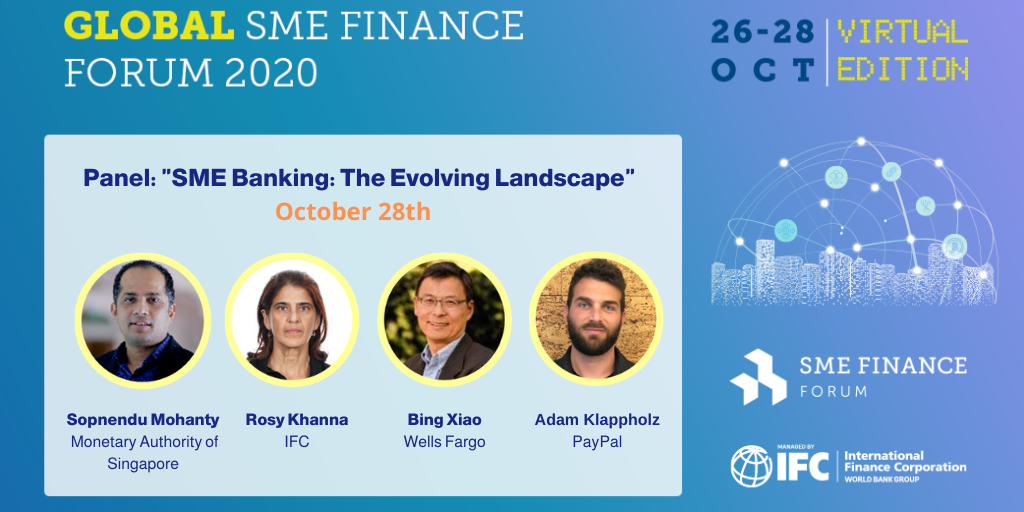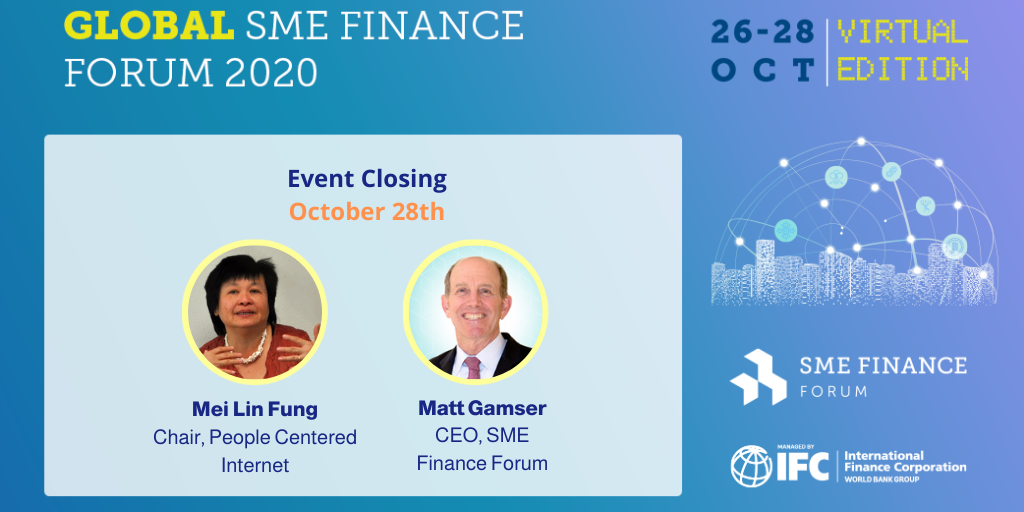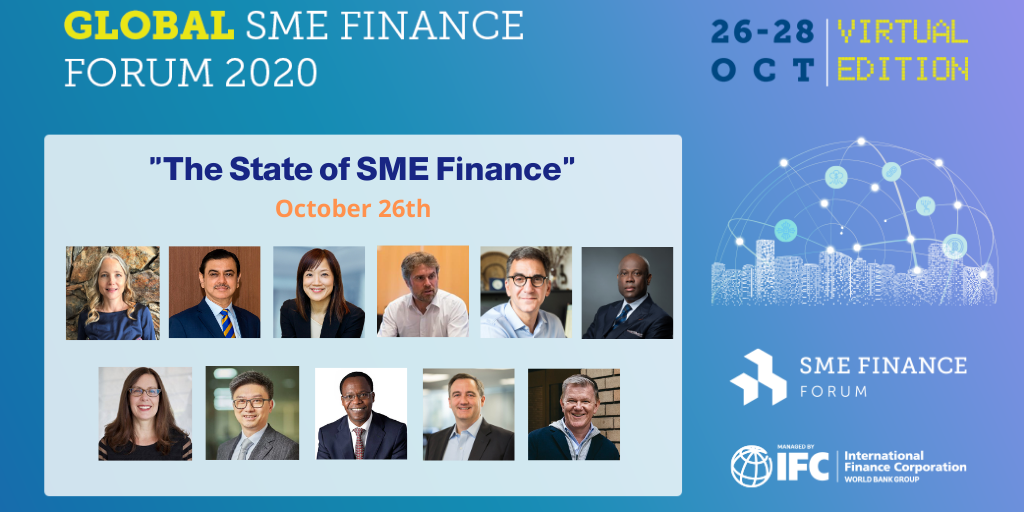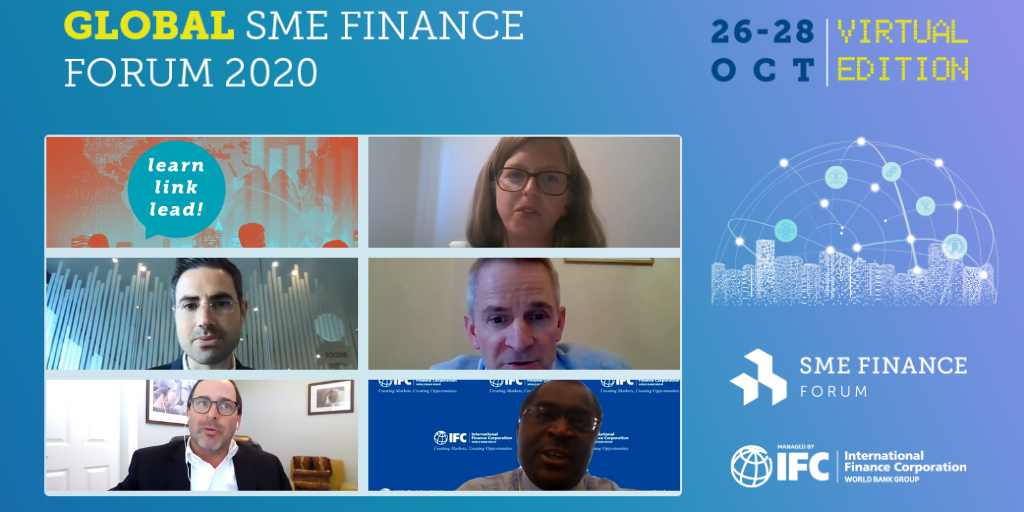The landscape of the global financial services industry has seen considerable changes over the past few years. The entrance of non-traditional financial institutions particularly Fintech and Big Tech has indisputably accelerated innovation in the financial sector and improved service offerings for consumers and SMEs. At the same time, they also make the industry ever more competitive, creating pressure and uncertainties for incumbents. What does this evolving landscape mean for SME finance?
COVID has highlighted the importance of financial institutions having digital solutions at their disposal for their clients. What we have seen is that disruptive technology and innovative business models have truly transformed the financial services industry across the world. The disruption that has been caused by platforms and fintech companies is demonstrating that improved customer experience, ease of access, and lower costs, really matter. There was a recent study by Mckinsey that highlighted that financial institutions could lose 20-60% of their profits if they don’t digitize their businesses. According to speaker Rosy Khanna of IFC, there are four key elements that businesses need, to achieve their digitization goals – frontend enablers, process automation, partnerships, and innovation. Additionally, the world is moving from competition to cooperation. Rosy shares that the type of partnerships they’ve witnessed across the 30 Asia Pacific countries they operate in are fintech as a service provider, strategic partnerships with fintechs, and co-lending models.
COVID has been a major accelerator of digitization of payments, whether that is in-store with QR codes or ordering online to pick-up at store. The pandemic has also accelerated e-commerce and according to Adam Klappholz of PayPal, this transformation is here to stay. In his view, successful transitions were witnessed by those who already had an established digital channel or were able to pivot quickly. Further, Adam shares his experience with PayPal and their emphasis on technology-first to stay on the cutting-edge of lending. He states that it can be very expensive for banks to underwrite small businesses because they require a lot of paperwork and time. However, PayPal working capital product is more instant, transparent, and fair, enabling small businesses to understand processes more easily. Additionally, PayPal partners with issuers and networks around the globe to provide the best experience to their customers.
Bing Xiao of Wells Fargo brings to light the on-going discussions around open banking. Open banking at its core is to allow third-party developers like fintechs to provide services on top of the infrastructure of the bank such a payment rails, transactional data, etc. In his view, embedded finance rather than open banking is the way forward. Banks need to figure out what is their strategic position. There are many different roles that they can play – universal, specialists, or relationship banking. Additionally, banks need to tailor their product to their customers. At Wells Fargo, they customize their products and services according to their customers to ensure their bank is not reduced to being a “dumb pipe.”
To summarize, banks need to adapt to the changing market. Defining their differentiation and value proposition is now, more than ever, critical to the survival of their business. The openness of the regulatory framework is extremely important to signal to banks that they need to serve their customers in the most cost-effective way possible and to become nimble themselves.
Key Points
-
Financial institutions could lose 20-60% of their profits if they don’t digitize their businesses
-
There are four key elements that businesses need to achieve their digitization goals – frontend enablers, process automation, partnerships, and innovation.
-
Types of fintech partnerships - fintech as a service provider, strategic partnerships with fintechs, and co-lending models.
-
Change of culture of a financial institutions must come from the top.
-
Businesses need to have a differentiator in the market to gain market share. There is an upfront cost for integration of technology not just for adoption but also for capacity and skill building.
-
Wells Fargo Gateway is a collection of APIs to connect to commerce sites for embedded services.
-
There is a need for a forward-looking regulatory framework. Embedded finance makes the privacy and ownership of data very complex. So, it is important for banks to think about the regulatory framework to enable a seamless model.


















